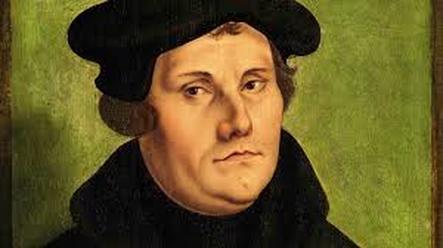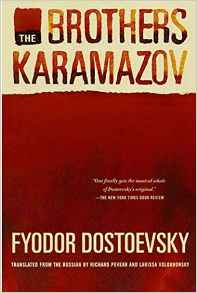|
For this year in Advent, our church is reading through the contemporary Advent Collects in the Book of Common Prayer. The Book of Common Prayer is a literary tradition spanning back to the time of the Reformation. It was a powerful tool that the Anglican Church used to shape its people around Christ. Not quite a hymnal, but similar, the Book of Common Prayer was valuable as many saints from all around the world forsook the world, the flesh, and the devil and sought to make their lives look more like Jesus using this book. We are not an Anglican Church, and we are not Anglican for some very important reasons. However, we do believe that, as far as this particular tool adheres to the Holy Scriptures, it is valuable for us to grow into Christ's image. So for the month of December, I am going to be blogging on the various readings from the Sunday Readings, called a "Collect." Each of these Collects is a prayer around a particular theme of Christmastime. The first one is a prayer that is shockingly eschatological (meaning it is about the end times). It is draped in the imagery of war and of the end times. Of that troubling and turbulent time to come, and of the peace which is on heaven and earth, good will to men. The peace of God only comes through the invasion of Christ. Needless to say, this is not your grandmother's Christmas! It reads as follows:
This first, this first prayer, has three important sections to it. First, it has the present. Second, it places the present in light of the eternal. Third, it pleads on the basis of the Triune God. Let's deal with each one in turn. Almighty God, give us grace to cast away the works of darkness, and put on the armor of light, now in the time of this mortal life in which your Son Jesus Christ came to visit us in great humility The first prayer of the Collect is a request for God to give us the grace of repentance. This is given a vivid flare by the contrast of darkness and light. We are invited through the Collect to ask God for grace to the task to be done. Christmastime, we learn, is not a time for pithy sentimentalisms. It is a time for war, a time when we embroider ourselves with the blood of the lamb. We desperately need the grace to fight this battle well. We need the armor of light, for the task at hand. This war requires work. This war is the most recent flare up of an eternal battle. And the campaign was started when God the Son paradropped into the sleepy town of Bethlehem. But the Son did not come as a mighty warrior, clothed in strength and armed with power. No, he came as a low-class carpenter, swaddled in the flesh of a babe. So great is this conquering Lord, that he will gather to himself those who come to him as his Son came to earth: the hesitant and humble, the bashful and bedraggled, the forgotten and forsaken, the unloved and untouched. He will carve his image into this forgotten stone of human misery. The chief weapon of Christmas war, we see, is the humiliation of God in the flesh of man. that in the last day, when he shall come again in his glorious majesty, to judge both the living and the dead, we may rise to life immortal Of course, this one who conquers through being killed, who defeats through death, who overthrows every power and name by being born in a backwater corner of a backwater province of the Roman Empire, will not come a second time so. Rather, the one who was born, lived, died, rose again, and ascended, will return on high. And when he does, he will gather himself the army of outcasts, and they, this messy mob gathered from the corner of every slum there ever was, will become as he is. At Christmastime, we look forward to the glory to be revealed in us. The glory of the angels on high, sweetly singing o'er the plain, will one day be ours! No longer will we have sunken cheeks, canyons formed by the everflowing saline springs in our eyes, the bony arms, and look of those who are in a world not their own. Rather, we will have glorious majesty, life immortal, raised with the resurrected and ascended Lord. Christmastime is when we look at that manger, the place where the sheeps and the goats feed alike, and we see the Lamb standing as though he had been slain. through him who lives and reigns with you and the Holy Spirit, one God, now and for ever. Amen. The final stanza of this first prayer carries us into the eternal plan of the infinite, triune God. The humble will be come the high, the meek the majestic, the gentle the glorious. We who carry in our flesh the cross of Christ will burst forth in glorious day. But this only happens through the one who was humble to the point of death, who was meek to the point of flagellation, who was gentle as a lamb led to the slaughter. And this, this is what we celebrate at Christmas. The advent of the Son of God, conceived by the Holy Spirit, commissioned by His Father, sent from the foundation of the world, and who will one day rule over the world. The Triune God is the God of Christmas Time, he is in it and through it and with it and for it and against it all at once. The Lion of the Tribe of Judah comes to us as the Lamb of Bethlehem, that sleepy shepherd town.
And nothing would ever be the same.  In America, we celebrate the holiday of thanksgiving once a year. We eat turkey, we watch football, we take time off. We dub this regimented indulgence, "Thanksgiving." We trace the tradition of yearly Thanksgivings specifically to our first fathers and mothers who came across on the Mayflower, but also through the presidency of Abraham Lincoln who instantiated the holiday of Thanksgiving. Well and good. Of course, how the practices of Thanksgiving actually relate to the command of God to be disciplined in giving thanks (Psalm 147:7) is something of a conundrum. We engage in the practice, but think little about the tacit formation. What does it mean to practice thanksgiving? Are our yearly practices of Thanksgiving actually congruent with the Scriptures' command on us to give thanks? To practice thanksgiving requires at least two steps. 1 - It is to acknowledge that everything that we have is from one another. This requires a pain-staking humility. To truly give thanks, we must come to an end of ourselves. We must look to something we have which we could not have attained for ourselves. Thanksgiving is the discipline where the gifted gratefully reflects on the gift the giver gave him which he could not have given himself. In other words, it requires us to say, "This came from someone else. It is gratuitous." The theoretical reason food is associated with with gift giving is an acknowledgement that that sustenance comes from another. We indulge in a whole array of foods and fill ourselves, and after we wake up from our food coma, we recognize that we could not have achieved that on our own. This is why we pray with thanksgiving at the beginning of every meal. It is to recognize that this comes from somewhere else, not ourselves. We recognize all that God has given us, all that God has showered on us and lavished on us. We recognize it is totally undeserved. It is not something we did to deserve it. This is the step that most people feel comfortable with. 2 - It is to reflect on what this implies about the character of the giver. If the giver gave the gifted such a gift, what does that imply about the giver? This is the step we don't care for. We don't take this step of thanksgiving first, because it requires work, and second, because the results can be somewhat disconcerting. For example, if I have much on my table, it is easy to give thanks. How generous this implies my God is! How wonderfully this compels me to think of him! But when all that is in my cornucopia are crumbs of stale bread or scraps of singed meat, what does this imply about God? That he has a purpose in my pain? I don't want to think about that. It is easy to give thanksgiving on Thanksgiving, or even on Christmas. We can be thankful even then. But in January, when the sky is glum, the ground is wet, and the table is empty? Can we be thankful even then. Can we believe that God would use even those seasons in our lives, where we are lean and hungry, trembling and tired? The discipline of Thanksgiving teaches us to be so. This might be a difficult practice to wrap our minds around. Yet it is essential. Because, Thanksgiving teaches us how to come to our Savior. When we come to him, all our Thanksgiving emotions point every direction (Rev 7:12). Because when we see him crucified, shamed, emaciated, skinny, ugly, ghoulish, bloody, broken, bruised hanging on the cross, what does this imply about God? Can we give thanks, even for this? Yes, we can admit, we could not provide a sacrifice on our own, the gift for the gifted is not of himself. But can we admit that this is the God who does indeed provide? A sacrifice for our sake. A broken body for ours. A man estranged in our place? Indeed it is He. But we also see a lamb, standing as though it were slain. Not only has he been killed, he has also been enlivened. Not only has he been crucified, he has been resurrected. Not only was he lowered into the ground, he is risen. When we give thanks for this, the greatest of gifts, we recognize that this too, this is our God. The God who provides. The God whose gift is not only death, but also life. Not only darkness, but also light. This thanksgiving, whether with plenty or little, with full or empty plates, give thanks to this God. The God who gave one to die for you, and gave one to life for you. The God who gave the lamb who is standing though he has been slain. Come to an end of yourself, and there you will begin to come to Him. "Nothing in my hand I bring, simply to the cross I cling."  This Fall, I have been developing a love for the persecuted church, especially after reading through Nik Ripken's The Insanity of God (which I would highly commend). We don't particularly like to talk about the persecuted church because our culture is a culture where comfort is king. But the persecuted church is the north star for Christian thought; it is ever before us, anchoring our heavenly citizenship to this earthly place. It reminds us that we are not home yet, and there is much work to be done. To know about, to think of, and to pray for the persecuted church is a necessary Christian discipline. When sit under the persecuted church, we are tapping into the Great Tradition, that torrential river of the thundering faith of the Church from all times and all places. The Persecuted Church teaches us, and disciples us in the way of Christ. Here are some of the things I've learned from the Persecuted Church.
 One of the most life-changing classes I took at Bible college was the study of the European Reformation. In that class, one character loomed tall above all in his passion for Christ, his heart for the Church, and His zeal for the Word: Martin Luther. Luther was a budding law student, who out of fearfulness donned the cloak of monkhood. And he threw himself wholeheartedly into the cloth, giving everything he had to self-effacing acts of piety. As he once quipped, "If anyone could be saved by monkery, it would be I." But the more he tried to be holy, the more he realized he was sinful. For him, to see the righteousness of God only created a resentment. How could one love God if God was standing over them continually with the judge's gavel, knowing full well that the sinfulness of man was on full display before the all seeing eye of God. God was not the tender shepherd who walked us through the valley of the shadow of death, God was the darkness of the storm thundering and shaking, striking and lighting up Mount Sinai. For Luther, to stand in God's presence was a terrifying prospect indeed, because he had no righteousness to cling to. He would surely be swept away at the awesomeness of that mighty moment. But Luther realized something about the righteousness of God. It was not only the standard by which he judged all human actions. It is also the means by which God makes his people righteous. God's justice is how he justifies his own. The righteousness God has, he gives to his people, this is what he says, as reported by the eminent Roland Bainton, "Night and day I pondered until I saw the connection between the justice of God and the statement that "the just shall live by his faith." Then I grasped that the justice of God is that righteousness by which through grace and sheer mercy God justifies us through faith. Thereupon I felt myself to be reborn and to have gone through open doors into paradise. The whole of Scripture took on a new meaning, and whereas before the "justice of God" had filled me with hate, now it became to me inexpressibly sweet in greater love... If you have a true faith that Christ is your Saviour, then at once you have a gracious God, for faith leads you in and opens up God's heart and will, that you should see pure grace and overflowing love." (Here I Stand, A Life of Martin Luther, 49-50) God is a holy, righteous God. Before him, we are all shown to be what we are: fickle, feckless children. But by the blood of Christ, God's wrath is removed. Our debt is paid. Our estrangement is taken away. Our slavery is redeemed. In the cross of Christ, the righteousness of God is made known. He became sin, so that we might become the righteousness of God. (2 Cor 5:21) Dear friend, hear the raw and radical, astonishing and audacious, overwhelming and breathtaking message that Luther preached. The righteousness of God was made known on the cross and can be grasped in faith. Only by emptying our hands of our little trinkets, only by scraping our resumes of all our accomplishments, only by humbly acknowledging what God already knows too well: that we cannot be good enough for God, can we come into the presence of God. We take off our own accomplishments, and we put on Christ's. We give up our own achievements, and we take up Christ's. We stop trying to pay the debt, and we cash the check that Christ wrote. Christ exchanged places with us, he took our shame, he gave us his honor. He took our sin, he gave us his salvation. He took our guilt, he gave us his grace. This is the gospel, the good news. This is the salvation that Christ gives us. This is the significance of Luther then, he dared to preach a gospel of audacious grace, a gospel of strange salvation. A gospel that tells us the whole world is guilty before God, and yet the grace of God can be had by all who believe. |
Southern Heights Christian ChurchCome here for thoughts on how to follow Jesus in our every day life! Archives
January 2022
Categories
All
|
Telephone |
Address5401 Madison Ave
Anderson, IN 46013 |
ServicesSunday School :: 9 AM
Sunday Service :: 10:30 AM |


 RSS Feed
RSS Feed